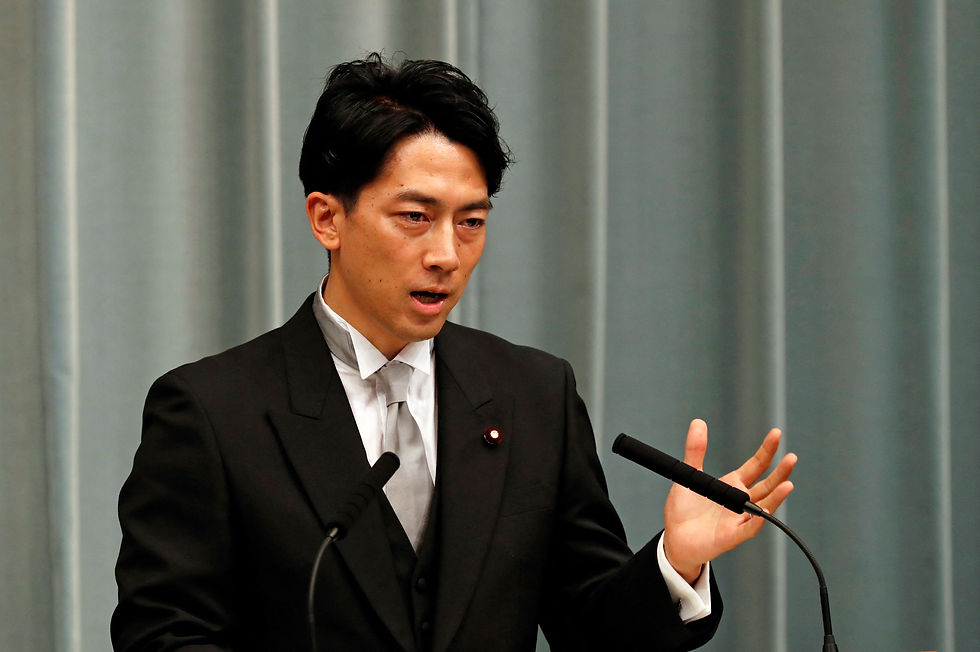Factbox-Who's vying to be Japan's next prime minister?
- News Agency
- Sep 12, 2024
- 4 min read

TOKYO - Japan's ruling Liberal Democratic Party on Thursday unveiled the nine candidates who will run in a Sept. 27 leadership election to replace Prime Minister Fumio Kishida.
Here are the leading contenders based on public opinion polls.
SHIGERU ISHIBA, 67
The former defence minister is making his fifth and, he says, final bid to lead a party that has governed Japan for most of the past seven decades.
Ishiba leads in most opinion polls, with 28% of respondents in an NHK survey on Sept. 9 favouring him as Kishida's successor.
He is alone among the candidates in calling for a shift from nuclear power to renewable energy such as geothermal and supports legislation that would allow female emperors, a view opposed by many LDP lawmakers.
His economic strategy includes boosting wages to counter rising prices and possibly exempting some goods from the Japan's 10% sales tax to help lower income citizens.
He backs the Bank of Japan's policy to gradually raise interest rates but has said it is unclear whether the timing is right for any new hikes now.
He has also proposed establishing a disaster management agency to build shelters and wants to improve conditions for military personnel to ensure ageing Japan has enough troops for its defence.
The son of a former prefectural governor and cabinet minister he is a rare Christian in a country dominated by Buddhism and Shinto. He is known for building model ships and planes.
SHINJIRO KOIZUMI, 43
The youngest candidate, Koizumi is the son of a former prime minister and heir to a political dynasty that has had a hand in governing Japan for over a century.
He has presented himself as a reformer able to restore public trust in a party mired in scandals. If elected, he would become Japan's youngest prime minister in eight decades.
Favoured in media polls by younger voters and women, he has promised to call a general election that could see Japanese voters go to the polls before the U.S. presidential vote in November.
Koizumi has promised to accelerate Kishida's policies to foster dynamic economic growth that can adapt to technological change including the rise of artificial intelligence.
The Columbia University-educated lawmaker has proposed opening up Japan's regulated taxi market to ride-sharing and is promising financial support for pensioners and low-income households. He has said he will push for higher wages at small and medium-sized companies, while also making it easier for firms to lay off workers.
He supports legislation to allow women to retain their maiden names and wants to allow female emperors despite opposition from many LDP lawmakers. He also backs a revision to Japan's war-renouncing constitution.
A keen surfer, Koizumi is married to French-Japanese TV personality and one of his brothers, Kotaro Koizumi, is a well known actor in Japan.
SANAE TAKAICHI, 63
Representing the LDP's right wing, Takaichi serves as Japan's economic security minister. She is the leading female candidate in the race and ran against Kishida in 2021.
She is known for her conservative views, including revising the pacifist constitution and is a regular visitor to the Yasukuni war shrine, which is seen by some Asian countries as a symbol of past militarism. She also opposes allowing women to retain their maiden names, arguing that doing so would undermine tradition.
Takaichi courted controversy in 2016 when she suggested the government could revoke broadcasting licences of media companies deemed to be politically biased.
Takaichi said she would prioritize economic growth to strengthen Japan's international standing, while using 'strategic spending' to boost employment and consumer sentiment.
TARO KONO, 61
With the support of rank-and-file LDP members, Kono was a leading leadership candidate three years ago but lost in a run-off to Kishida who had backing from more LDP lawmakers.
This time, Kono, who as digital minister is trying to phase out fax machines, has lagged in opinion polls.
The third generation LDP lawmaker, who was educated at Georgetown University and served as Japan's foreign minister and defence minister, says his connections would give him an advantage in dealing with Washington regardless of the outcome of the U.S. presidential election.
Kono says he would reform labour markets to improve pay and conditions for millions of part-time workers and to help people retrain for higher-wage jobs.
In the campaign he has drawn attention for suggesting that Japan deploy nuclear-powered submarines to guard maritime choke points in the waters around the country.
OTHER CANDIDATES
Other candidates include Toshimitsu Motegi, 68, the secretary-general of the LDP, who has also served as foreign minister and trade and economy minister. Yoko Kamikawa, 71, Japan's current foreign minister, is also running as well as former economic security minister Takayuki Kobayashi, who at 49 is the second-youngest candidate after Koizumi.
Joining them in the race are Katsunobu Kato, 68, who has served as health and labour minister and Chief Cabinet Secretary, and the current holder of that position, Yoshimasa Hayashi, 63, who is also a former defence minister and foreign minister.

.png)








Comments